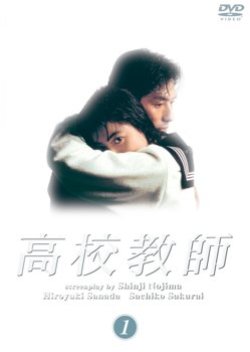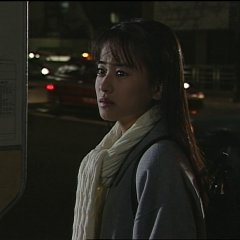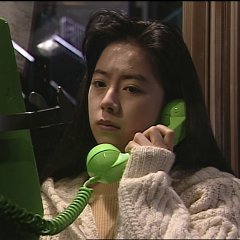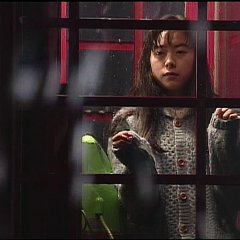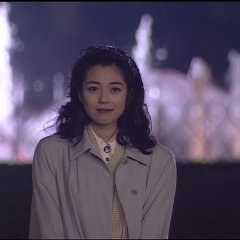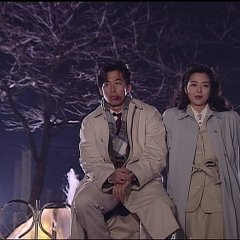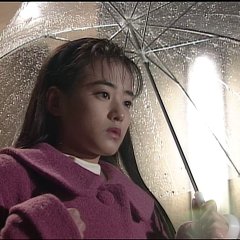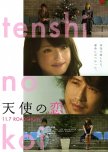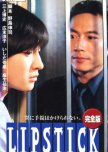 Let's appreciate: J-Movies and Dorama fansubbers!
Let's appreciate: J-Movies and Dorama fansubbers! - Português (Portugal)
- Русский
- English
- magyar / magyar nyelv
- Título original: 高校教師
- Também conhecido como: High School Teacher , Koukou Kyoushi
- Roteirista: Nojima Shinji
- Diretor: Moriyama Toru
- Gêneros: Psicológico, Romance, Drama, Melodrama
Elenco e Créditos
- Sakurai Sachiko Papel Principal
- Sanada Hiroyuki Papel Principal
- Kyomoto MasakiFujimura TomokiPapel Principal
- Akai HidekazuShinjyo ToruPapel Secundário
- Minegishi ToruNinomiya KosukePapel Secundário
- Mochida MakiAizawa NaoPapel Secundário
Resenhas

I'm a huge and everlasting fan of prolific screenwriter Nojima Shinji and can't say enough how great and influential a writer he has been for Japanese TV in the 90s. While his initial claim to fame came in the way of writing somewhat conventional love stories and human-life "Trendy Dramas" such as "Hitotsu Yane No Shita" "Ai To Iu Nano Moto Ni" ,"Kimi ga Uso wo Tsuita", it was his later "darker" and more sublime dramas which really showcased how talented and brilliant a writer he was. Many people said that Nojima Shinji has a gift in writing words. His dramas might win and lose interests, but most of the times they’re worth to quote.
Kou Kou Kyoushi is one such drama, a very dark one and in fact it's considered a cult classic in the annals of Japanese TV Dramas. The story was unconventional to say the least, not only in the scope of its plot but also in the way that it was presented.
The drama revolved around the taboo romantic relationship between the meek and shy academic Hamaura Takao (played by amazing and of the most famous Asian stars Sanada Hiroyuki) and his hopelessly optimistic and cheery 17 year-old homeroom student Ninomiya Mayu (played by the incredibly cute Sakurai Sachiko). As the series progressed and Takao and Mayu's romance intensified and grew more deeper, the audience soon discovers that Mayu's carefree disposition is but a mask to hide a truely depressing history and an even darker personal secret. We feel the intense darkness as death is mentioned along the way. Despite that however, the soundtrack and the main characters’ heart are pure and innocent. The director himself mentioned in a commentary that Nojima Shinji was the one who decided to choose an innocent Mayu. Not that there aren’t Gals and other type of girls in 1993 society, but Nojima Shinji decided to create an innocent characters for his story. Whole characters development was fantastic, every one of them had their own story, secret, their own deepness and the actors were really great in portraying those characters.
The issues covered in Kou Kou Kyoushi are controversial (a rape by a teacher, an abortion, homosexuality, another relationship between a young teacher & student, incest, etc.) but these accurate depictions did much to bring such topics into public discussion in Japan during the 1990s. The situations portrayed here are quite realistic--Japanese teachers have a higher responsibility for their students than in many other countries, and unfortunately some have intentionally or unintentionally abused this trust.
It is said that Nojima structured "Kou Kou Kyoshi" almost like a classic Greek Tragedy. With its lurid themes of teacher-student romance, suicide, rape, incest and bullying, "Kou Kou Kyoushi" was heralded as a bold and controversial drama and generated huge viewership ratings at the time of its debut. In subsequent years it has become quite a cult drama series and it's shock ending is truly one of the most memorable in Japanese drama history.
Even after 22 years it has been made, even I have seen so many dark and really difficult dramas to digest, this one will for sure stay in my mind for a very very long time and despite all those controversial and depressed issues in it, I've enjoyed and was fascinated by depth of love of the two main leads and their pure, innocent hearts in all that hopelessness and abyss of heartless and harsh society.
Esta resenha foi útil para você?

Esta resenha pode conter spoilers
Tainted Love—A Disturbing Tale of Trauma and Redemption
Plot Summary🎭Koko Kyoshi follows the harrowing life of Ninomiya Mayu, who endures a traumatic and abusive relationship with her father from middle school onwards. Living with a painting of her younger self in the house—a chilling reminder of her past—Mayu’s existence is marred by secrecy and suffering. Her mother’s disdain and subsequent death leave her isolated, with her father being her only source of support despite the deeply flawed nature of their relationship.
Meeting Hamura🧑🏫
Mayu’s encounter with Hamura, a new teacher at her school, introduces a glimmer of hope. Though initially an awkward figure, Hamura becomes a beacon for Mayu. Her desperate cries for help, conveyed through letters slipped into his mailbox, reveal her yearning for escape. Hamura’s initial ignorance gradually turns into a protective role, though he remains emotionally distant.
Critical Turning Points🌊
A pivotal moment occurs in Episode 5 when Mayu and Hamura visit Kamakura after watching *The Way We Were*. The journey, marked by Mayu’s frustration over Hamura’s constant watch-checking, parallels Matsuda Seiko’s 80s hit "Akai Sweet Pea". This scene effectively highlights the emotional disconnect between them and Mayu’s internal conflict.
The hotel's stay becomes a turning point where Mayu reveals her vulnerability. The delicate exchange between her and Hamura underscores her fear of being judged for her hidden truth. Their subsequent intimacy marks a shift in their relationship, though it becomes clear that Hamura's understanding of Mayu's suffering is incomplete.
Hamura’s Realization and Aftermath🔍
Hamura’s ultimate realization of Mayu’s traumatic past, particularly when he discovers her in her father’s room, leads to a decisive action. His efforts to rescue her from her father’s clutches culminate in a tragic sequence where Mayu, feeling abandoned and isolated by Hamura's sudden distance, decides to leave him and return to her father.
Tragic Resolution 🚂
The series reaches its devastating climax with Mayu’s decision to die alongside Hamura on a train, following a series of shocking events: Hamura’s violent confrontation with her father, the destruction of her family home, and her father’s suicide. This finale is a grim testament to the complexities of their relationship and the irreversible impact of their intertwined fates.
---
Conclusion🌟
Koko Kyoshi presents a profoundly disturbing yet compelling narrative. It explores themes of trauma, love, and redemption with an unflinching gaze. The series challenges viewers with its portrayal of an abusive relationship and the characters’ desperate struggle for escape and understanding. While deeply unsettling, it provides a raw examination of human emotions and the devastating effects of unresolved trauma.
Esta resenha foi útil para você?

